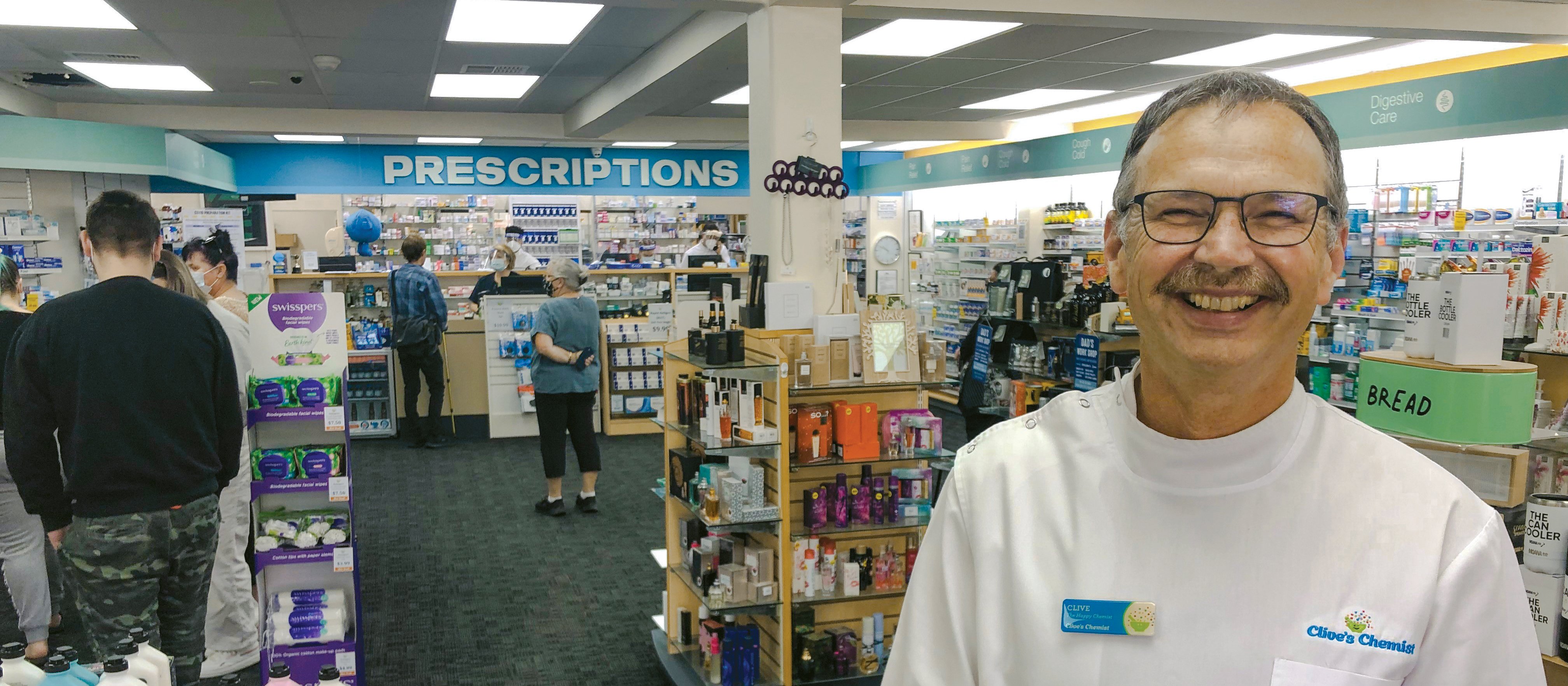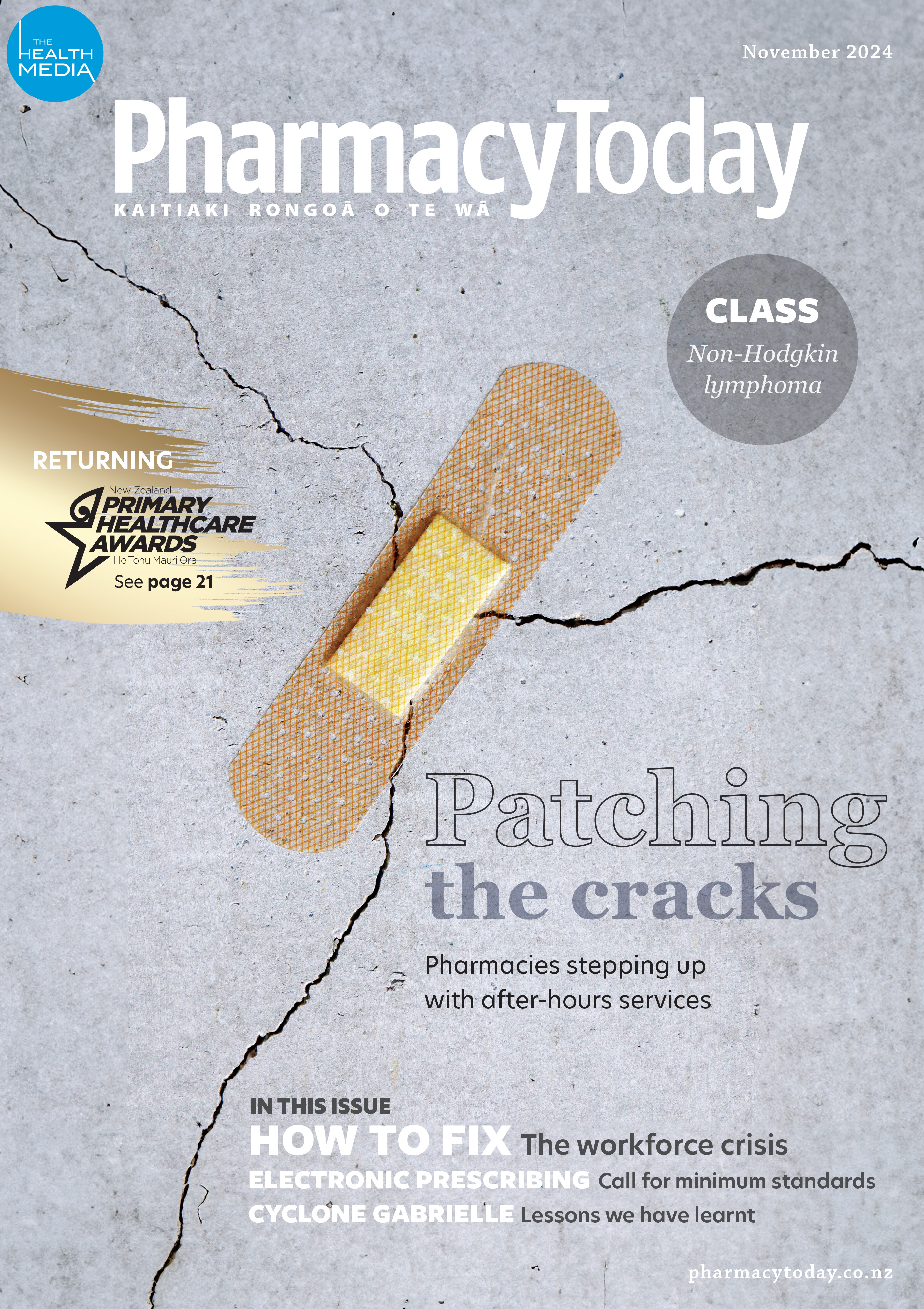Academic pharmacist Nataly Martini highlights the importance of understanding non-Hodgkin lymphoma and pharmacists’ roles in managing this condition
Countdown Pharmacy ownership structure ruled unlawful
Countdown Pharmacy ownership structure ruled unlawful

The Independent Community Pharmacy Group had their day in court and they won on the question of pharmacy ownership. Jonathan Chilton-Towle reports
A High Court judge has declared that Countdown’s corporate pharmacy ownership model does not meet the legal requirement that a pharmacist owner has effective control of their pharmacy.
The decision, which may have wideranging implications for other large pharmacy groups with similar ownership structures, comes as a partial victory for the Independent Community Pharmacy Group.
The group has been seeking a judicial review of the Ministry of Health’s interpretation of requirements around effective control of pharmacies when granting a pharmacy licence.
The case was heard by Justice Cheryl Gwyn at the High Court in Wellington in November and Justice Gwyn released her decision on 15 June.
Pharmacy ownership rules in the Medicines Act 1981 specify that all pharmacies must be at least 51 per cent owned by pharmacists, and those pharmacists must have effective control of the pharmacy.
The Independent Community Pharmacy Group (ICPG) argues the ministry incorrectly interpreted the effective control rules when granting pharmacy licences for Countdown pharmacies.
Ownership of various of the supermarket chain’s pharmacies is divided between several companies registered as GDL RX 1 to GDL RX 9.
Pharmacists hold more than 51 per cent of these companies but the constitutions and shareholder agreements create a situation where the pharmacist owners cannot make any changes to the businesses without approval from the corporate shareholder, Countdown.
However, the pharmacist owners can block Countdown from making any changes to the business that they do not agree with.
When granting licences to Countdown pharmacies, Medicines Control Protection, Regulation and Assurance at the ministry identified this model as “negative control”, which it determined was enough to satisfy effective control requirements.
But the Independent Community Pharmacy Group disagrees, saying effective control requires pharmacy owners to be able to make decisions related to their businesses.
Justice Gwyn ruled in the group’s favour.
“Effective control requires positive control and therefore mere veto power or negative control by pharmacist shareholders does not amount to ‘effective control’ of the company...,” she writes in her decision.
“The licences granted by the ministry to RX8 [Countdown Pharmacy] should be set aside.”
Justice Gwyn deferred her order to quash the licences for four weeks from 15 June to enable filing of submissions by Countdown Pharmacy and the Ministry of Health.
As of Pharmacy Today’s deadline, the ministry and Countdown have not said if they will appeal the decision.
This is a huge win for independent community pharmacy in New Zealand, and will likely have implications for other corporate pharmacy models in New Zealand
ICPG spokesperson and Wainuiomata pharmacy owner Clive Cannons says he is overjoyed by the court ruling.
“This is a huge win for independent community pharmacy in New Zealand, and will likely have implications for other corporate pharmacy models in New Zealand,” Mr Cannons says.
“The ICPG took on the Government and one of the biggest corporates in the country and won.
“On behalf of the ICPG, I am proud to have been a part of this action and want to firstly thank all the pharmacists around the country who backed us; the Pharmacy Guild for their invaluable support; and our legal team for their hard work.”
The ICPG group represents around 100 independent pharmacy owners and since news of the court case outcome broke, Mr Cannons says more owners have contacted him about joining.
If Countdown or the ministry appeal, Mr Cannons says the ICPG has money left in the chest to continue the court battle.
Beyond the case, the group will also continue to do advocacy work for independent pharmacies.
Pharmacy Today asked the ministry whether it would appeal and received a statement from chief legal advisor Phil Knipe saying: “Manatū Hauora – Ministry of Health acknowledges the judgment of the High Court, and is carefully considering the court’s decision.
“Manatū Hauora notes the legal and operational implications relating to the administration of the ‘effective control’ aspects of pharmacy ownership within the Medicines Act 1981, and the potential implications for holders of licences to operate pharmacy.”
Meanwhile, Countdown’s head pharmacist Jeremy Armes says Countdown is reviewing the decision.
“The approach taken by the Ministry of Health and Te Whatu Ora in relation to licensing has been in place since 2008,” Mr Armes says in an emailed statement.
“We will work closely with the ministry and Te Whatu Ora to make sure we comply with any changes it decides to make to its licensing approach in light of the court’s decision. In the meantime, it’s business as usual for our pharmacies and customers.”
The Pharmacy Guild was an interested party supporting the Independent Community Pharmacy Group (ICPG) in its case.
Guild chief executive Andrew Gaudin says: “We welcome this decision and were pleased to see repeated acknowledgement of the evidence presented by counsel for the guild in the Judge’s decision.”
In an emailed statement, Mr Gaudin says: “Given the significant financial investment and expertise we brought to the case, it’s great to know the important role our evidence had on this positive outcome for the community pharmacy sector.
“While ICPG and the guild were not successful on the other matters raised in the case, we hope members are satisfied that we made the right decision in joining the case and represented their interests effectively.”
The ICPG was not successful in all its arguments. It also sought review of decisions by Te Whatu Ora (formerly Hutt Valley and Tairāwhiti DHBs) to grant licences to two Countdown pharmacies in Wainuiomata and Gisborne, arguing that the DHBs did not follow a proper decision-making process.
But Justice Gwyn found the two contracting decisions were commercial decisions and not reviewable.
Even if the decisions could be reviewed, Justice Gwyn found the ICPG’s case would have failed.
“Each DHB adhered to its own policies and procedures in considering and granting the [contracts]...there were adequate accountability mechanisms…; and the applicant had a clear commercial interest in bringing the proceeding.”
Mr Cannons says the ICPG is still weighing up the pros and cons of whether it will appeal this part of the judgment.








